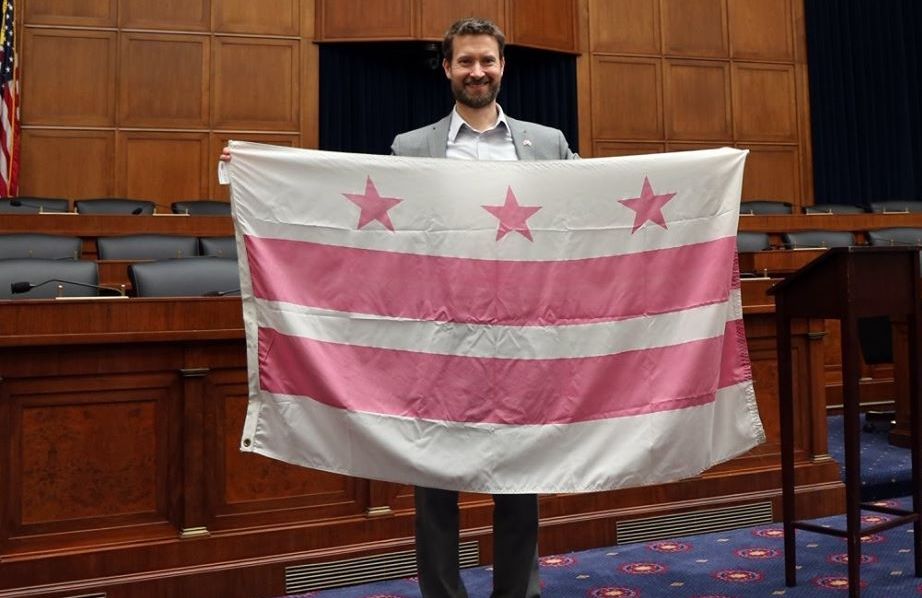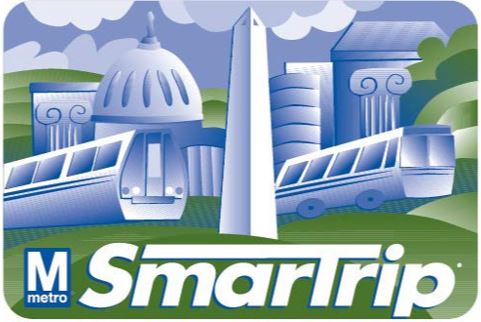[ad_1]
By Imani Wj Wright
Special to the AFRO
On March 4, D.C. Council member Charles Allen (D-Ward 6) introduced the Metro for DC Amendment Act of 2020, a proposal that would give nation’s capital residents a monthly subsidy of $100 on their SmarTrip card and establish a dedicated fund to invest millions in improved bus services in neighborhoods long neglected for transit planning.
Charles Allen spoke with the AFRO about the issues that were the catalyst for this proposal, how the Act will be carried out, and the positive effects this will have on D.C. residents.

“We’re trying to come up with a solution that’s going to help families and individuals with an equity focus on those who live in the eastern half of the city, but most specifically in Wards 5, 7, and 8. Household income is lower in Wards 5, 7, and 8 in comparison to other parts of our city. We’ve realized transportation costs can really add up, and they can really take a significant impact on the household budget,” Allen said.
Last year, the Council member led an effort to decriminalize fare evasion, which is the act of individuals deliberately not paying for public transportation.
“What’s the right reaction to fare evasion? A criminal consequence over a $2 fare is just an outsized response. We obviously want people to pay fares, but a civil response is the right way to go.” Allen said.
“If I take the top 10 bus routes with the most prevalent rates of fare evasion, 9 of those 10 routes run through low income neighborhoods and are predominantly in Wards 7 and 8. I don’t believe that there is anything about Wards 7 and 8 that lends itself to fare evasion other than- it’s just economics. Just like anywhere else in the city, people have to get to work, school, the grocery store, the doctor’s office, but they just may not have the $2 fare. The crux of this is economics,” the Ward 6 Council member continued.

Allen mentioned that even though the city has changed the consequence of fare evasion, the underlying issue of people evading fares has not been solved. Per Allen’s Department of Transportation research, he realized access to transit is not equal. Significant parts of Wards 4, 5, 6, 7, and 8 are spending 30-60 minutes getting to work, while in other parts of the city, it may be around 15 minutes. Not only are people having issues with affording transit, but they also deal with the obstacle of having the longest amount of time on transit,” he said. “Metrobus and Metrorail are also less accessible in Wards 5, 7, and 8, per 5 minute walkability compared to other parts of the city.”
“Several cities are doing what’s called fare free… and other cities are providing subsidy models. Both of them have their pros and cons,” Allen continued.
The Council member explained the difficulty in complete control of the transit system, as the District has to share decisions with Maryland and Virginia.
“Unlike a lot of other cities where they have complete jurisdiction over their transit system, we are WMATA which is Virginia, Maryland, D.C. and the federal government. To do a fare-free model means we’d need all of those jurisdictions to all agree at the exact same time, which is hard to do,” said Allen.
Allen asserted that the proposed legislation has two key functions- the $100 transit subsidy and second part of the bill, that Allen described as “critical,” which is a $10 million dedicated transit equity fund that will be created. This budget will have to go towards improving bus services to transit priority neighborhoods. Allen said he believes these changes can transform the city.
“Fortunately, the District is in really strong financial health. For five straight years, every quarter, we’ve had increased revenue to the tune of tens of millions, hundreds of millions of dollars. We know we have the money to do this. When the city is so great, I think we should put the money back in the hands of the residents who are making it so great,” Allen said.
There will be no tax increase needed via Allen’s proposal.
[ad_2]
Source link
